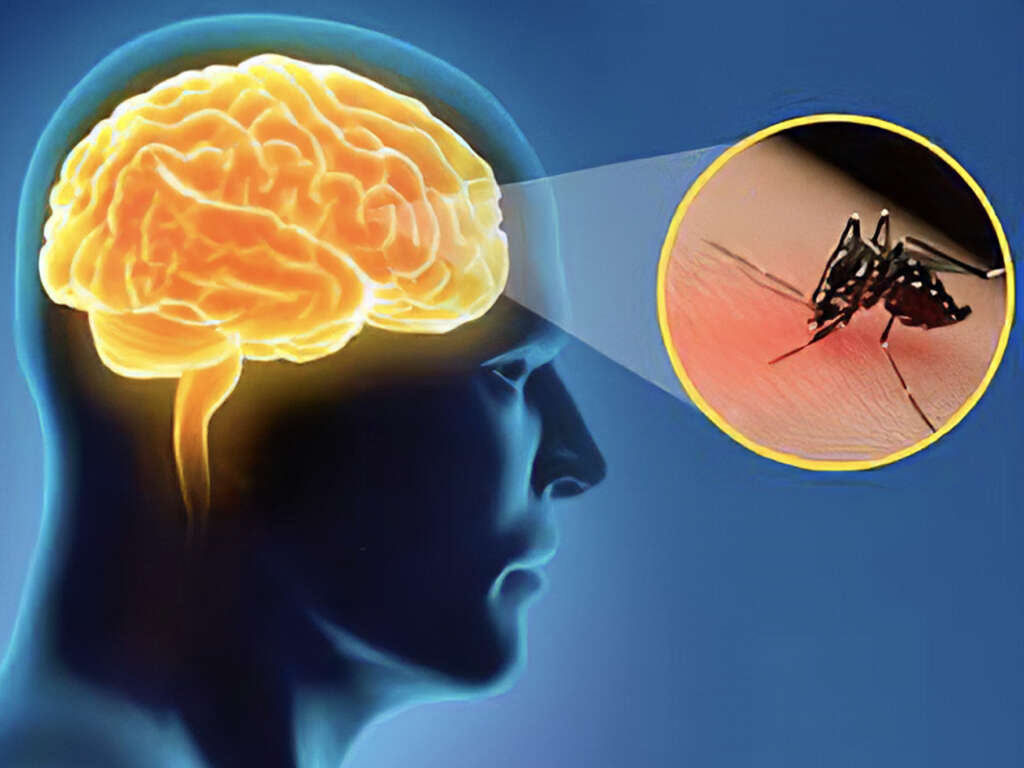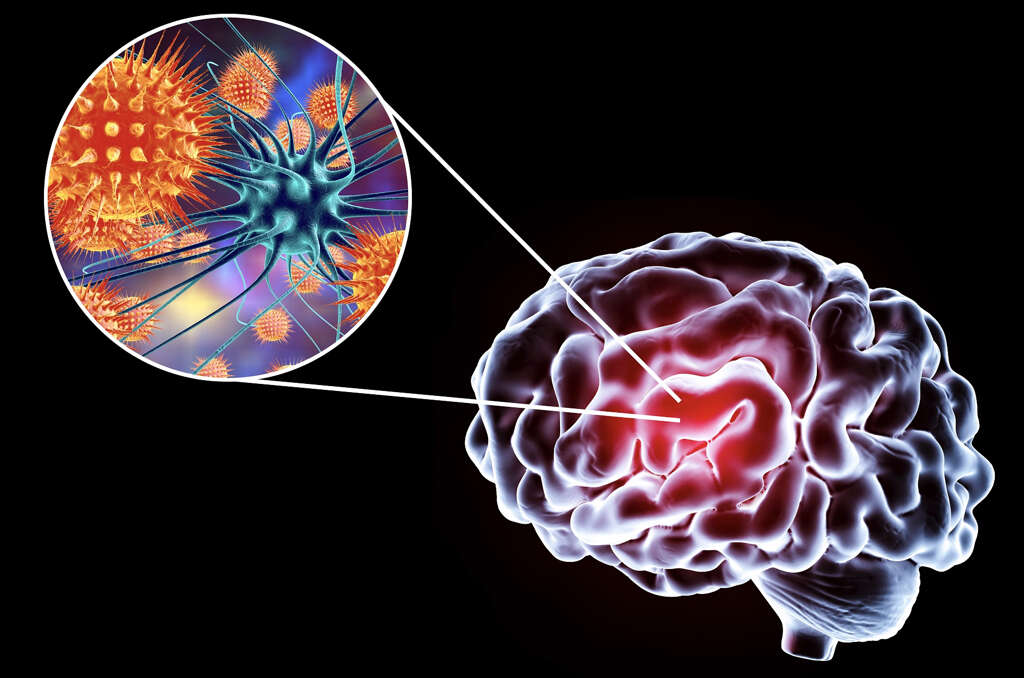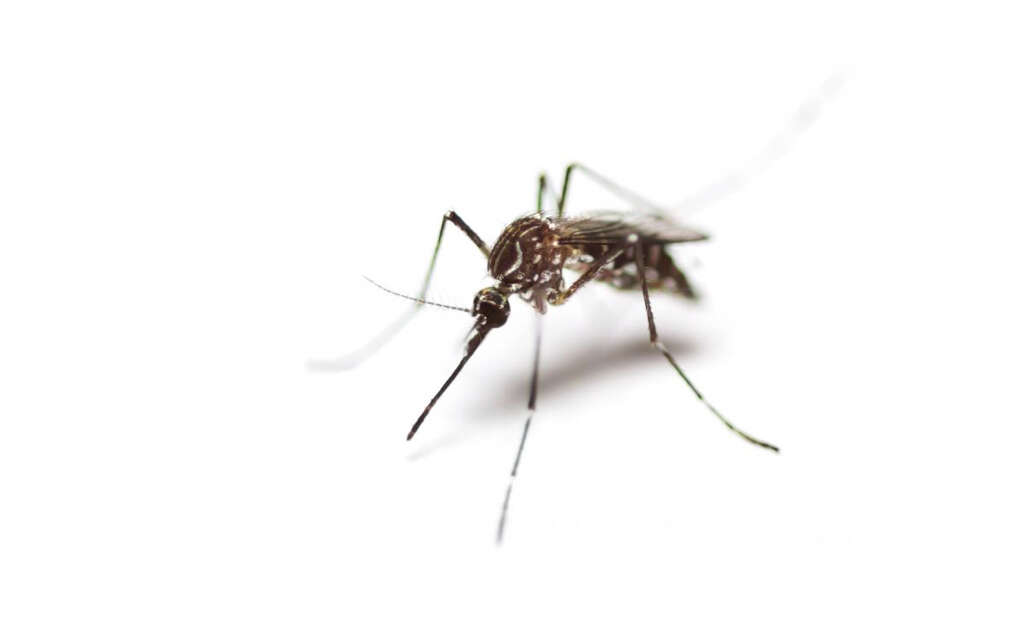What Is Viral Encephalitis?
Our brains have excellent physical protection thanks to our thick skulls. In addition, they are protected from toxins, and many pathogens, by the blood brain barrier. This is a protective barrier that allows nutrients and oxygen in, while keeping unwanted elements out.
While the blood brain barrier is effective at keeping us safe most of the time, it is not completely impenetrable. Some pathogens will be able to make it through the barrier, including some viruses that can infect the brain. Infections of the brain can cause the brain itself to become inflamed in a potentially serious condition known as encephalitis.

1. Viral Encephalitis
As the name suggests, viral encephalitis is a disease that is caused by a viral infection. In this case, it is a viral infection of the brain. When the brain is infected, it can become inflamed, and this can lead to a number of unwelcome symptoms. However, some people with the condition will experience no conditions whatsoever.
When symptoms do show, the patient will feel as though they have a mild case of the flu, or similar. The severity of these symptoms can vary and some people will feel very ill indeed. Viral encephalitis can also cause some other, more severe symptoms, and in some cases, the disease can pose a very real threat to the patient’s life.

2. Causes
There are a number of viruses that can cause viral encephalitis. The infection tends to occur before or during the time when the patient is ill with another virus-related disease. This includes diseases like the flu, mumps, chickenpox, measles, and herpes. Among the most common culprits is the herpes simplex type 1 virus, which is responsible for herpes and cold sores.
A sub-category of viral encephalitis is arbovirus encephalitis. These are varieties of viral encephalitis that are caused by viruses that are spread by insects such as ticks and mosquitos. Arbovirus encephalitis tends to be restricted to certain regions where particular insects are found.

3. Primary Encephalitis
There are two main types of viral encephalitis, one of which is primary encephalitis. This means that the virus is directly infecting the patient’s brain and spinal cord, thus resulting in inflammation, and the other symptoms and complications associated with the condition. Primary encephalitis will sometimes involve a virus that has been reactivated after a previous disease.
The infection can be located in one area of the brain, or it can be affecting the whole brain. Primary encephalitis can range significantly in severity, from barely noticeable to extremely dangerous. Primary encephalitis is itself broken down into 3 main categories which are common viruses, childhood viruses, and arboviruses.

4. Secondary Encephalitis.
Secondary encephalitis is a condition that is caused by a reaction to a viral infection elsewhere in the body. It is a type of autoimmune condition, which means that the patient’s own immune system begins to attack the very body it is supposed to be protecting. In secondary encephalitis, the presence of a virus elsewhere will cause the immune system to attack the brain’s cells.
It is not yet understood why the immune system starts to attack its own brain cells in this way, and autoimmune conditions in general are not well understood. Secondary encephalitis is also sometimes known as post-infection encephalitis. This is because it tends to happen 2 to 3 weeks after the initial infection took place.

5. Mild Symptoms
As mentioned, people with the condition will usually only show mild symptoms, if they show symptoms at all. These are likely to include a headache, and a mild fever will also be present. The patient will also likely be feeling aches and pains in their joints, which itself is a side-effect of one of the immune system’s responses.
Viral encephalitis will also cause fatigue in people and cause them to feel week. These symptoms can be more severe in some cases but, most of the time, the disease will likely be passed off as the flu. Even patients with mild symptoms can go on to develop more serious symptoms, however.

6. Serious Symptoms
If the condition is progressing to something more serious, then the patient can begin to lose sensation in parts of their body. They might also begin to experience paralysis in different parts of the body. The patient may also feel as though their muscles are weaker than usual. They can also become easily confused, and problems with speech and hearing will also arise in some cases.
Viral encephalitis can also cause seizures, loss of consciousness, and comas. In children, serious symptoms include nausea and vomiting, irritability, and a loss of appetite. The body can also become stiff, and they can develop bulging in the areas where their skull is soft.

7. Risk Factors
Encephalitis is a condition that can affect just about anybody. However, certain people will be more at risk from it than others are. This includes people that are ageing, and the very young. People that live in regions where certain insects are found are also at a higher risk of developing encephalitis.
People with weakened immune systems are also at a higher risk of the disease. This tends to include people that have HIV/AIDS or other diseases that suppress the immune system. People who are on medication to suppress their immune system after organ transplants are also at a higher risk.

8. Prevention
Vaccines are available that will help protect people against some of the viruses that can cause encephalitis. There is, however, no sure way to completely protect yourself against encephalitis from other types of virus. However, everybody can take straight forward precautions that will significantly reduce their chances of catching the disease.
Good hygiene practices can be very effective, which mostly means washing your hands regularly and avoiding sharing items with other people. Protecting yourself from the bites of certain insects can also help to protect against the disease. Using protection during sexual intercourse is another way to help prevent the spread of certain viruses.

9. Diagnosis
To begin with, a doctor is likely to ask you about your symptoms and your medical history. They may also perform a brief physical examination. If encephalitis is suspected, then further tests will be needed to help confirm what the problem is. One method is a spinal tap, which means taking a sample of fluid from the spinal column.
Other methods of diagnosing encephalitis include CT scans or MRI images. These can help to look for problems like tumors, while also helping to identify swelling on the brain. An electroencephalogram may also be performed to help get a reading of the electrical activity in the brain. A small sample of the brain tissue may be taken in rare cases.

10. Treatment
Treatment for viral encephalitis will depend largely on the severity of the patient’s symptoms. The patient is generally advised to get plenty of rest, and anti-inflammatory medication may be prescribed. Antiviral medication will also likely be prescribed to help prevent the condition from getting worse and, hopefully, to kill the virus altogether.
The type of antiviral medication can change depending on which virus is causing the problem. Anticonvulsants may be necessary and some patients may need to be put on a machine to help them survive. Therapy may be needed for some after the infection has passed to help the patient regain strength and various functions.












